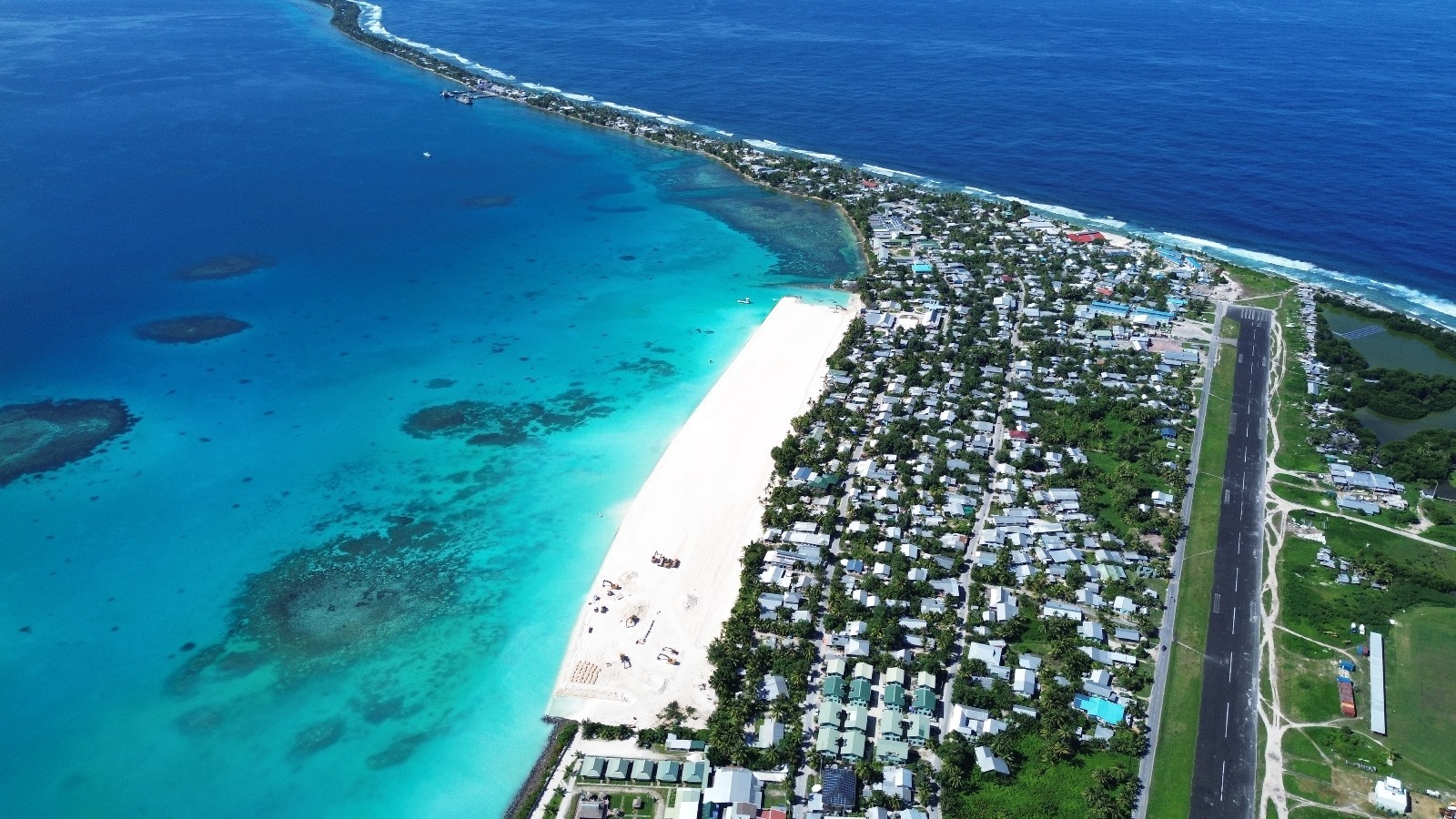The Pacific Minister Pat Conroy says Tuvalu’s new government has formally agreed to begin ratifying the landmark Falepili Union with Australia, delivering the federal government a significant foreign policy win.
Last month Tuvalu’s new Prime Minister Feleti Teo raised concerns about the lack of consultation on the pact in the Pacific island nation, and seemed to signal he’d seek changes to the agreement to protect his country’s sovereignty.
There has been particular controversy in Tuvalu about a section of the Falepili Union which said Australia must “mutually agree” to any security arrangements that the Pacific nation strikes with other countries.
But Teo has since appeared to soften his position, telling RNZ there were other safeguards to protect Tuvalu’s independence “written all over the treaty,” and that he wanted to set up arrangements to guarantee sovereignty which “short of revising the treaty.”
The ABC understands the Prime Minister has since written to Anthony Albanese confirming he’s happy to press ahead with ratification. Tuvalu has also indicated it will not seek any changes to the existing text.
Conroy told parliament that Teo’s government had now officially “confirmed its desire to proceed with the Falepili Union.”
“Respect and support for each other’s sovereignty are at the heart of our Falepili Union,” he said.
“It puts in place transformational arrangements to safeguard the future of Tuvalu’s people, identify and culture – and to advance Australia’s interests in a peaceful and secure Pacific.”
Under the agreement Australia will offer permanent residency to up to 280 people from Tuvalu every year, in recognition of the existential challenges which climate change pose to the low lying island nation.
Australia has also promised to boost development assistance to Tuvalu to help it adapt to rising seas and build up its defences to increasingly catastrophic storm surges and king tides.
The section on security includes a promise from Australia to help Tuvalu if it faces military aggression, a pandemic or humanitarian disaster – although Conroy stressed to parliament that Australia would only provide that assistance in response to a request from Tuvalu.
The Pacific Minister said the section requiring Australia “mutually agree” to any third party security arrangements made by Tuvalu was to “enable effective operation of the Treaty” and that discussions on this point would be “achieved through friendly consultation and frank and honest dialogue.”
Australian officials were relieved by Teo’s success in post-election negotiations and ascension to the top job, in part because he was on a panel of eminent citizens which helped the government in Tuvalu to formulate the pact.
His subsequent criticisms of the consultation processes behind the pact surprised some in Canberra, but the government now seems confident that the ratification process is on track.
While it’s not clear exactly what additional “arrangement” Teo wants to put in place to shore up Tuvalu’s sovereignty, they’re expected to involve the treaty’s implementation guidelines.
The parliaments in both countries will now press ahead with ratification processes, which in Australia means the treaty will be considered by a parliamentary committee on treaties, which will hold public hearings on the document.
It’s also possible that the Foreign Minister Penny Wong will lead a bipartisan delegation to Tuvalu later this year.
Both Australia and Tuvalu are hoping that that Falepili Union can enter into force by the end of this year.














